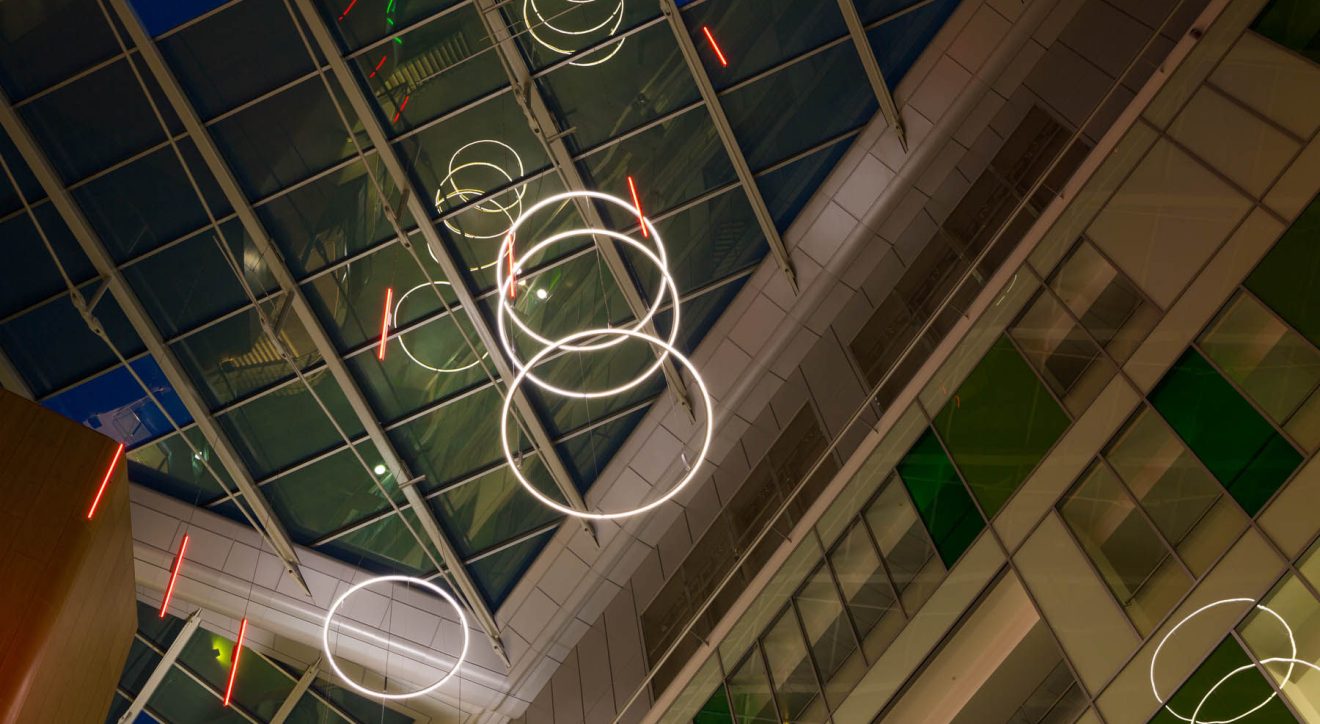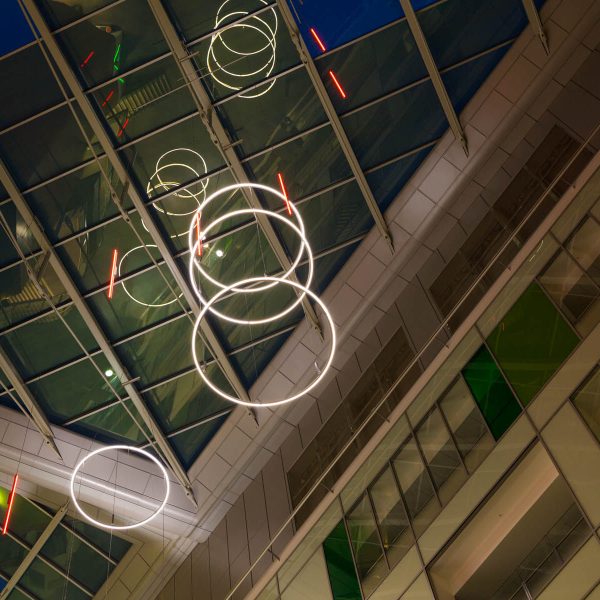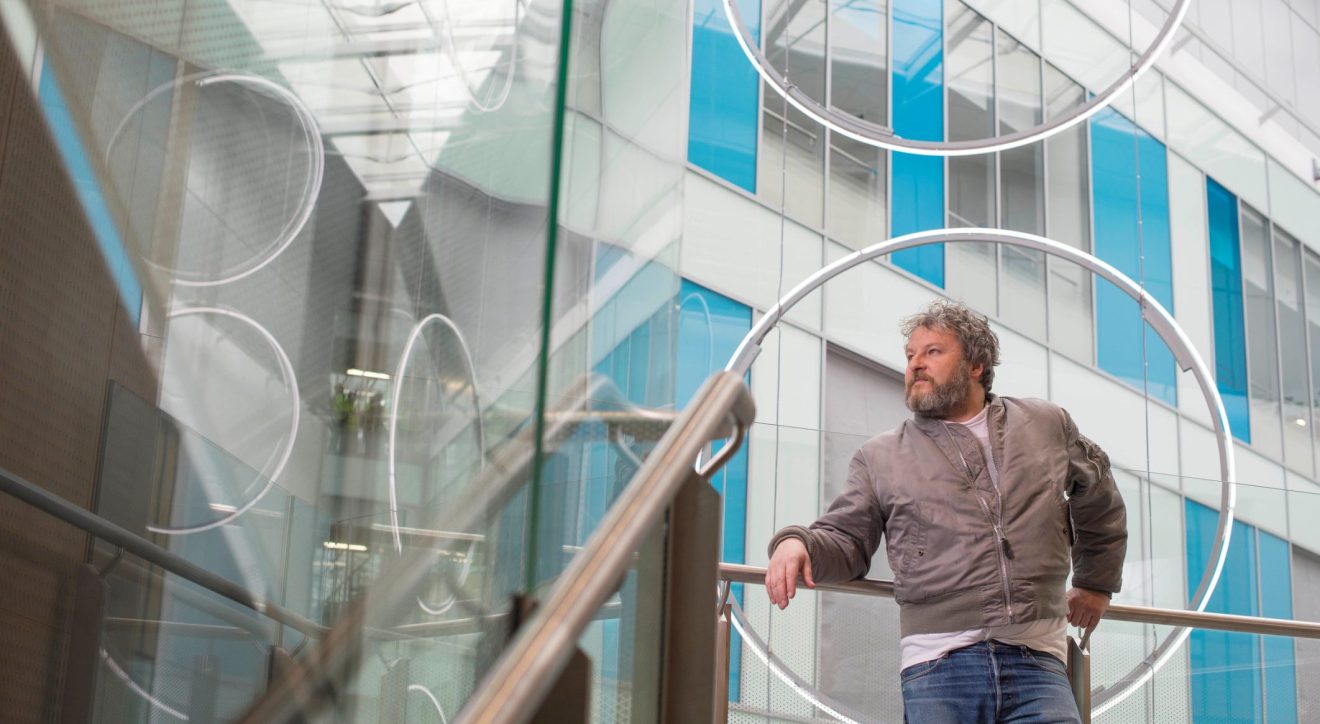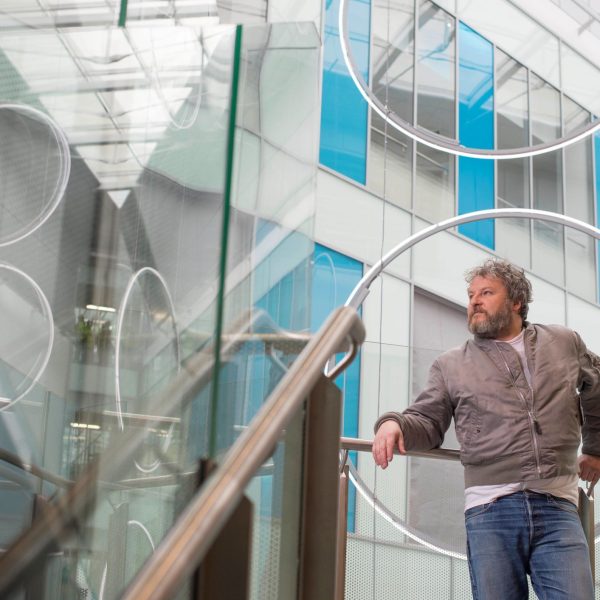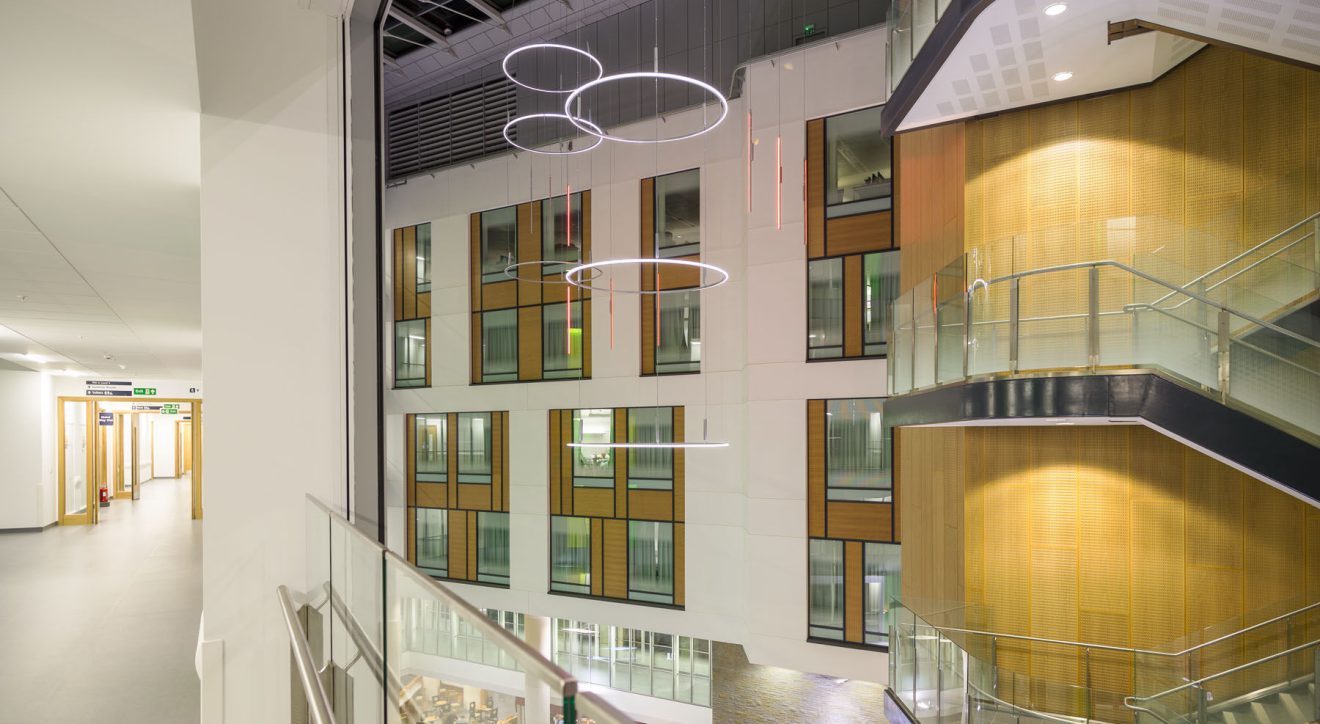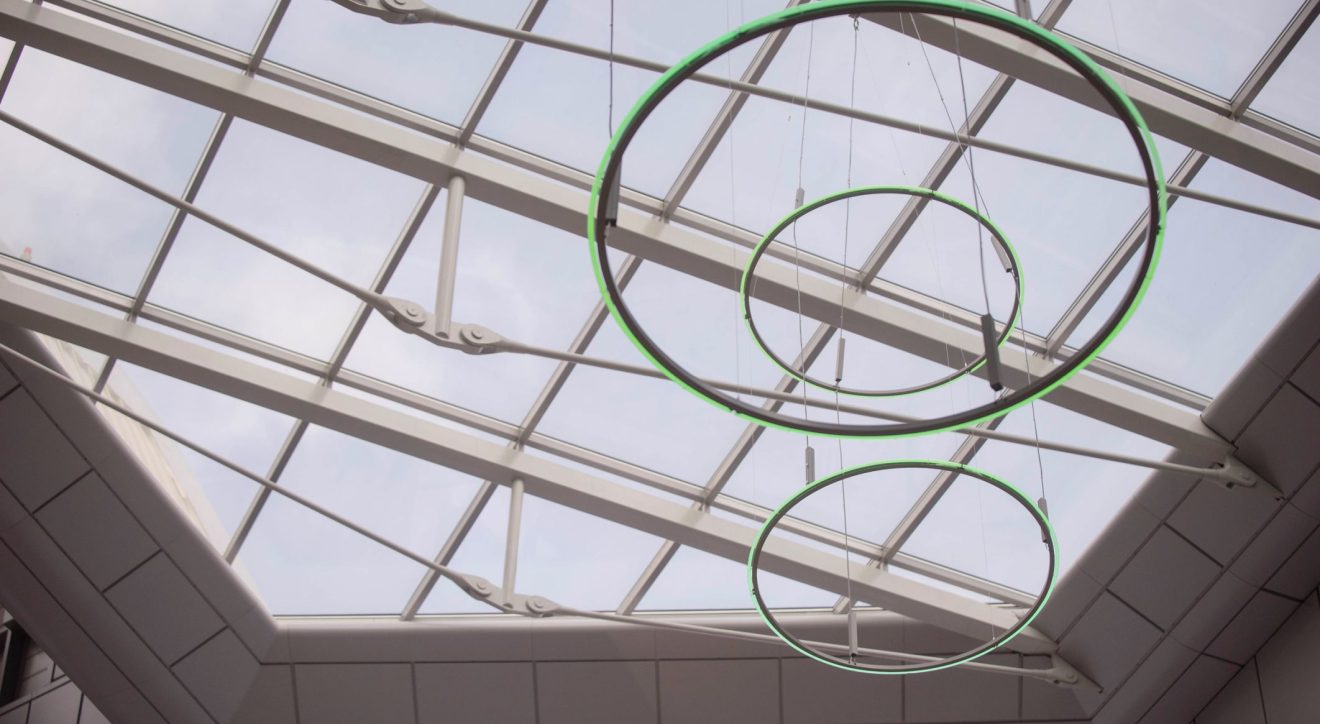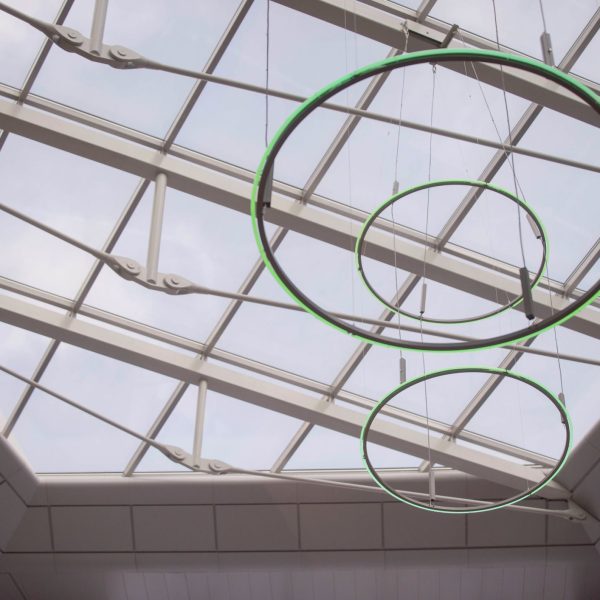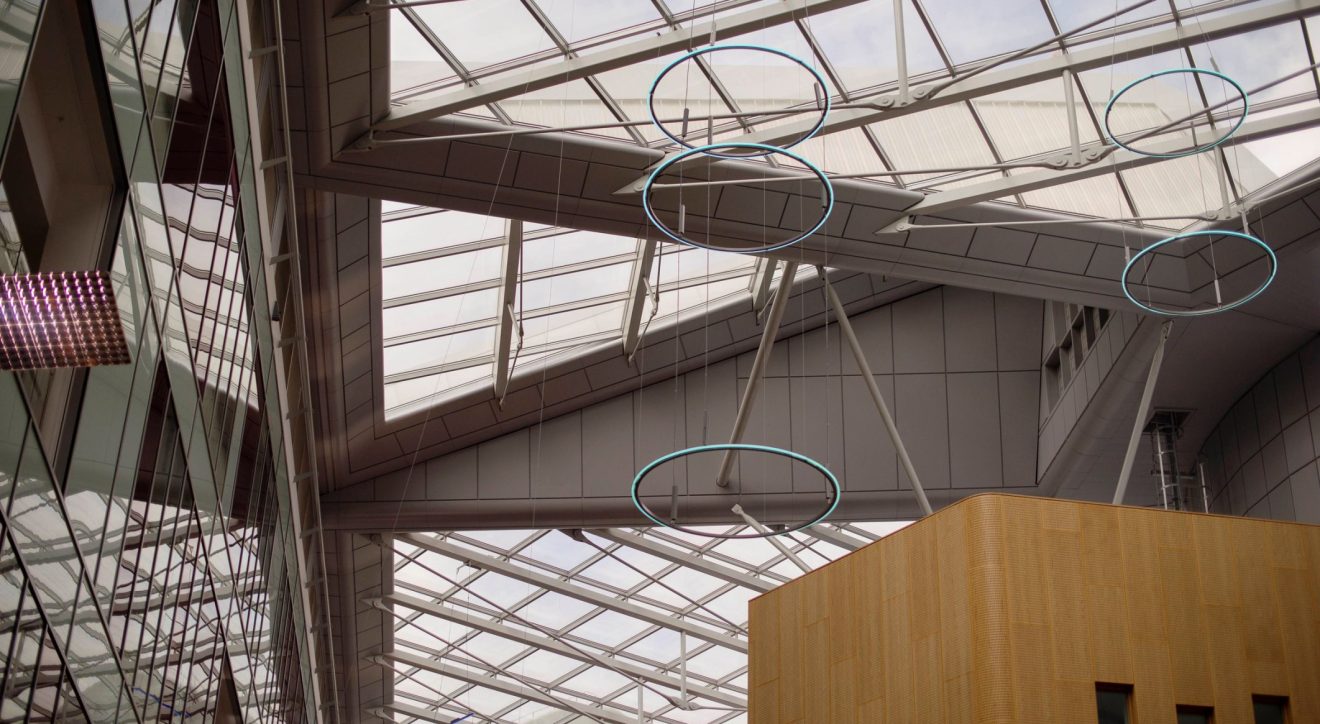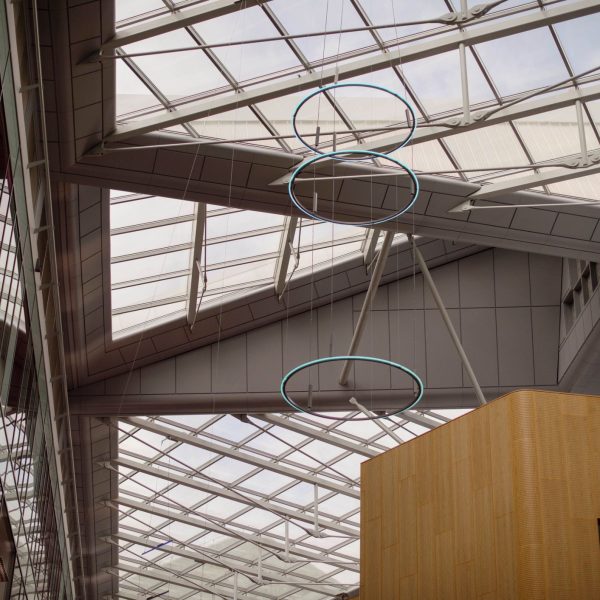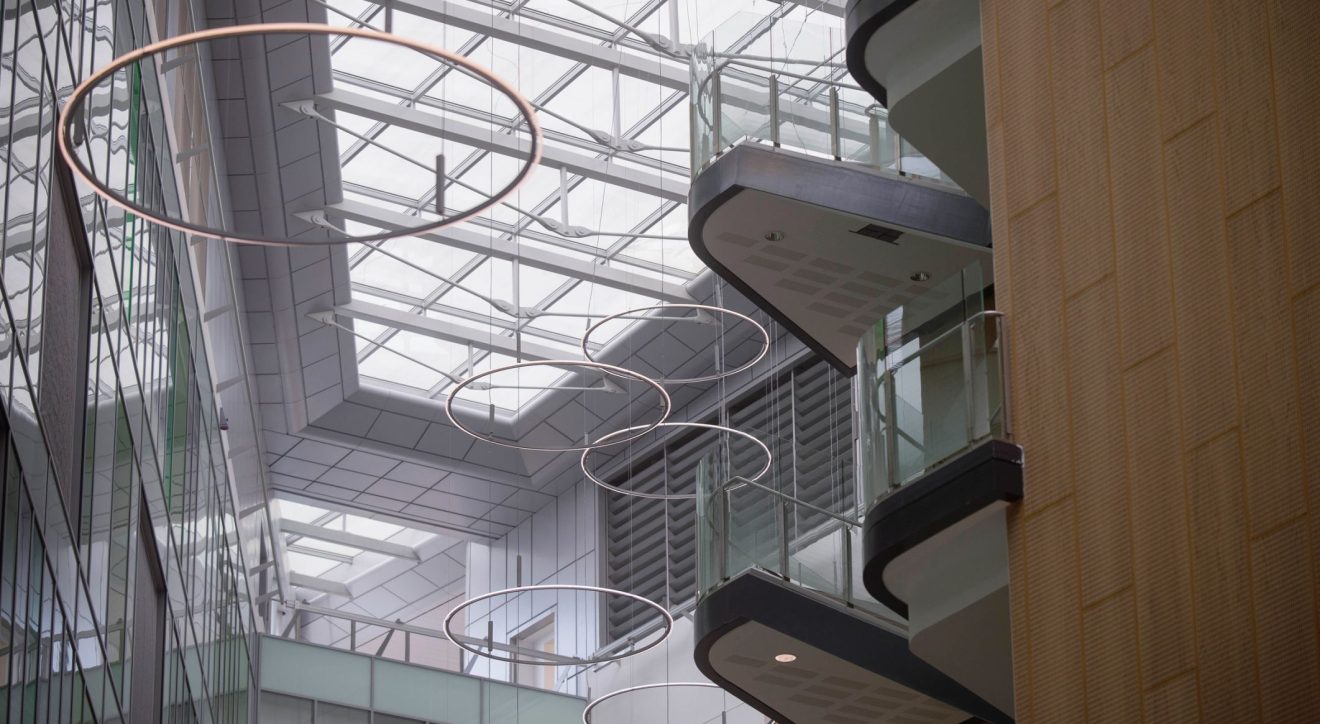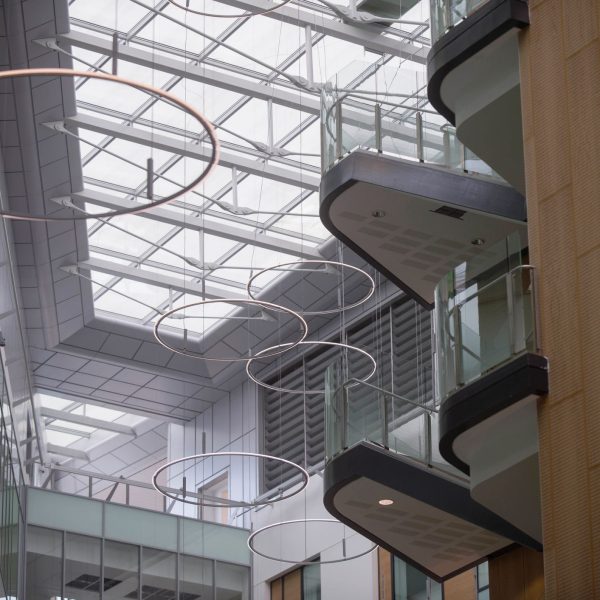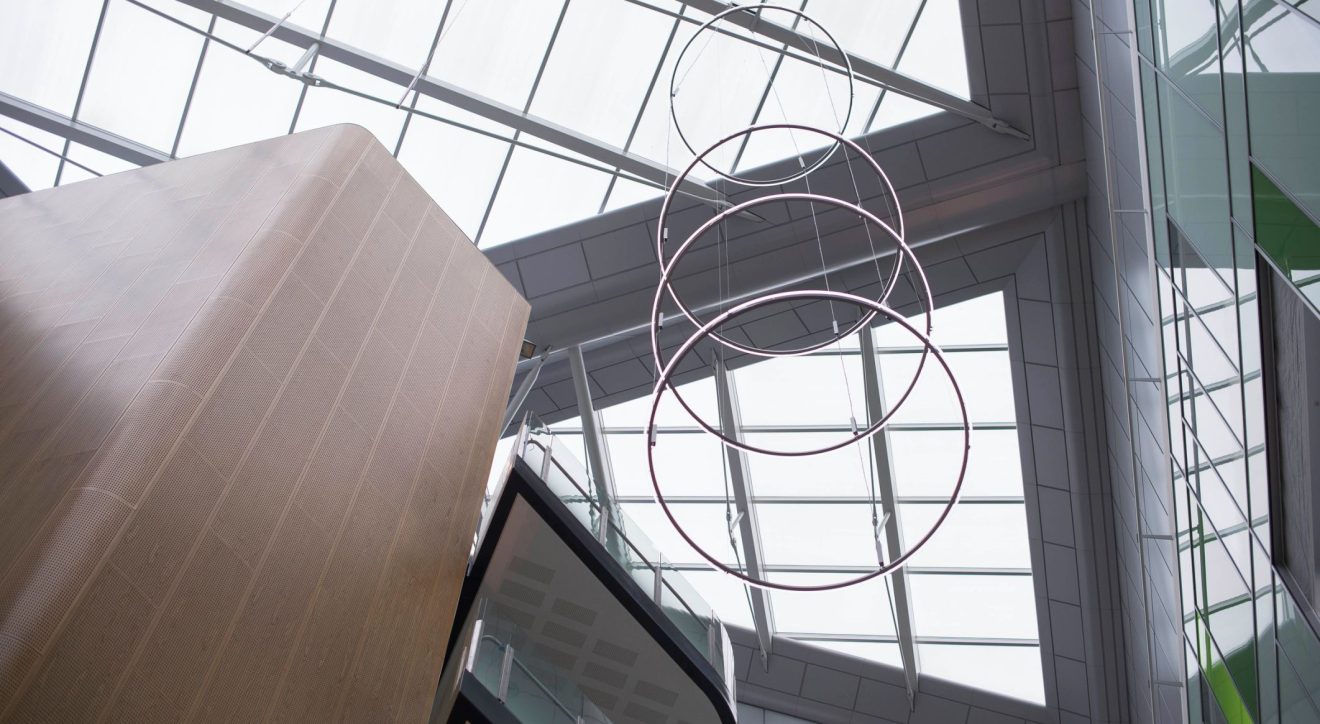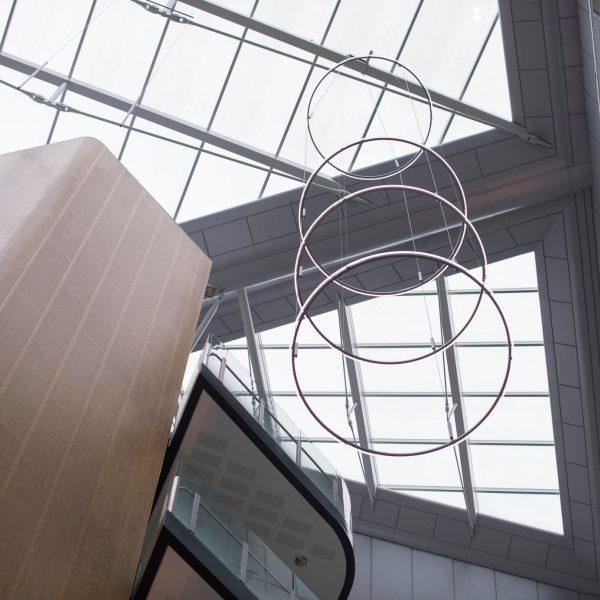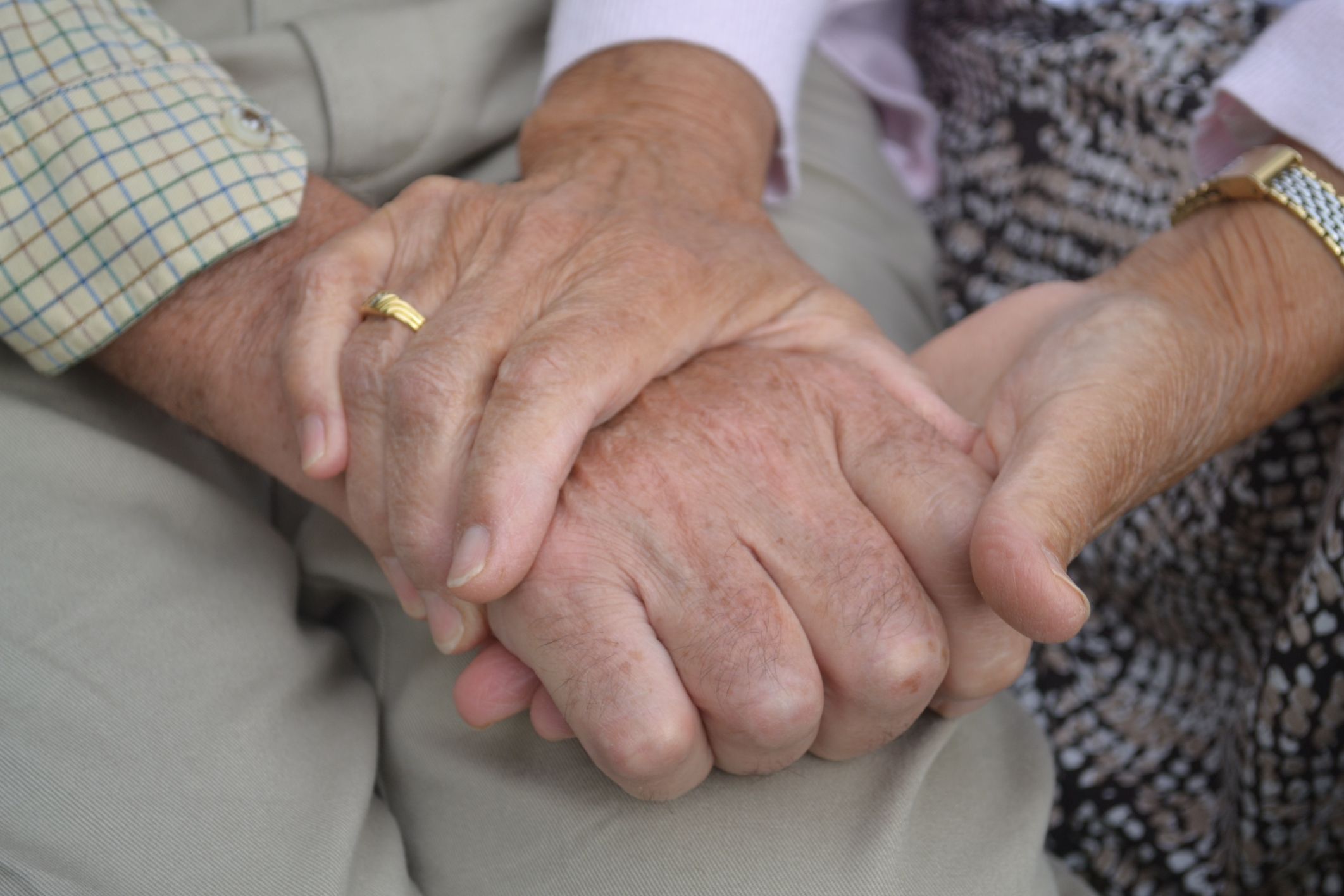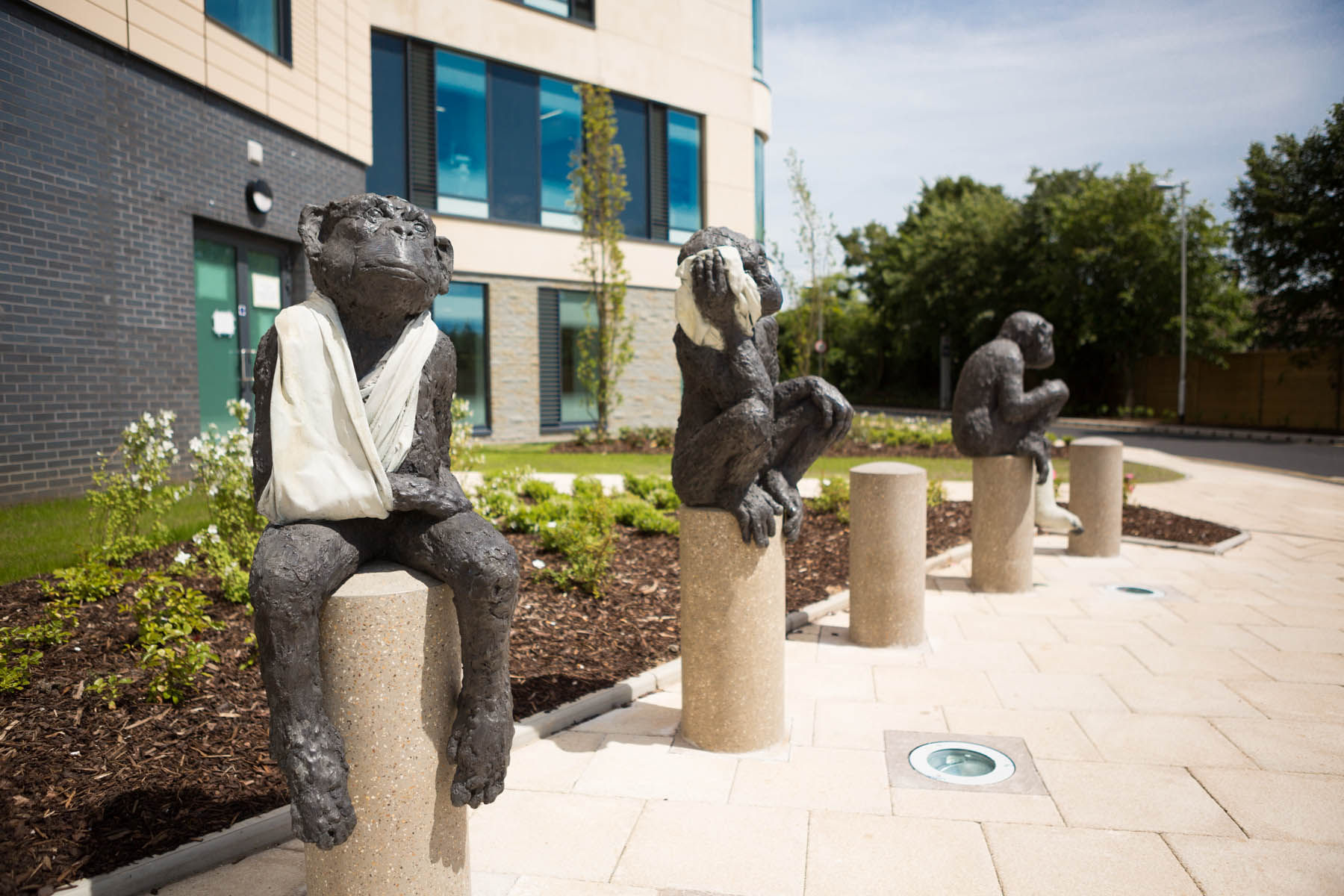
Synopsis
German artist Tobias Rehberger was commissioned by Willis Newson to create an artwork for the main concourse of the new Southmead Hospital Bristol. His work – which hangs from the roof of each of the three 7 storey atria – comprises of 3 neon light sculptures which combine to create binary clocks and provide a bold focal point and sense of arrival.
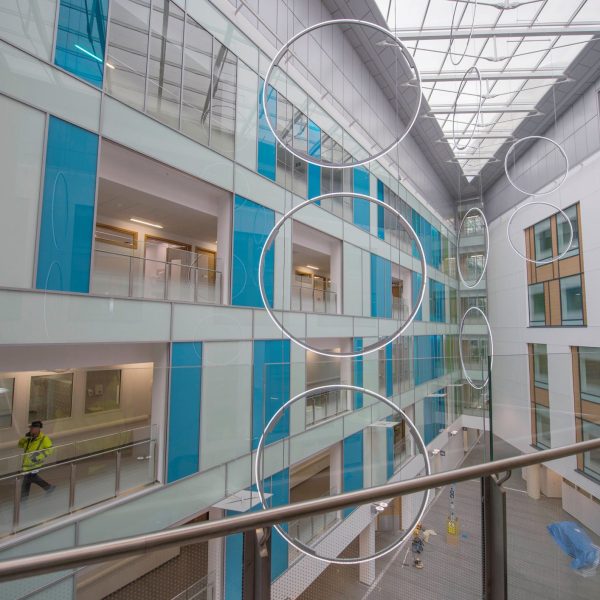
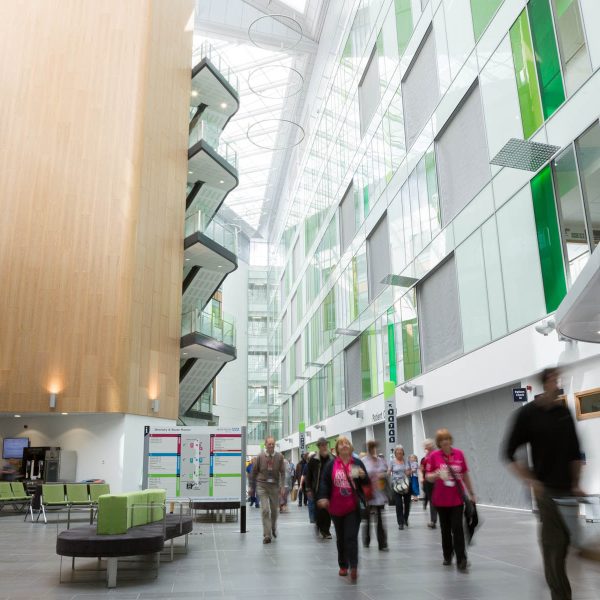
Rehberger’s interest in this commission stemmed from the nature of the space at the new Southmead site – three lofty atria (up to 30m high in some places) – and a desire to create work that was beautiful, challenging and inspiring for all those who use the hospital.
The development of Southmead Hospital Bristol integrated a major public art programme, featuring the work of nationally and internationally recognised artists, such as Tobias.
Tobias felt that ‘time’ was a particularly appropriate theme for the site. The sculpture consists of 78 suspended neon elements separated into three sculpture groupings. Each neon element is controlled by a computer and turns on and off according to the exact time of day.
For viewers, the piece is open to interpretation on two levels: for those who understand how a binary clock is read, the varied but eventually repetitive sequences within the sculpture can be decoded through continued observation to ascertain the time of day; for those who are not familiar with the principle, the seemingly abstract changing light patterns will provide an absorbing display.
Rehberger’s work will be crafted from mouth-blown glass by German company Nordlicht using traditional production methods of glass blowing and metal working. The artwork, installed in 2014, is a complex arrangement of suspension wires, neon elements, power cabling and computers to control the clock.
The public art programme for the new Southmead Hospital was led by arts consultants Willis Newson, commissioned by the developers of the site, Carillion. Underpinning the project was a close collaboration between North Bristol NHS Trust and its arts programme Fresh Arts, architects Building Design Partnership (BDP), the commissioned artists, Carillion & Willis Newson. Willis Newson also worked with Theresa Bergne of Field Art Projects.
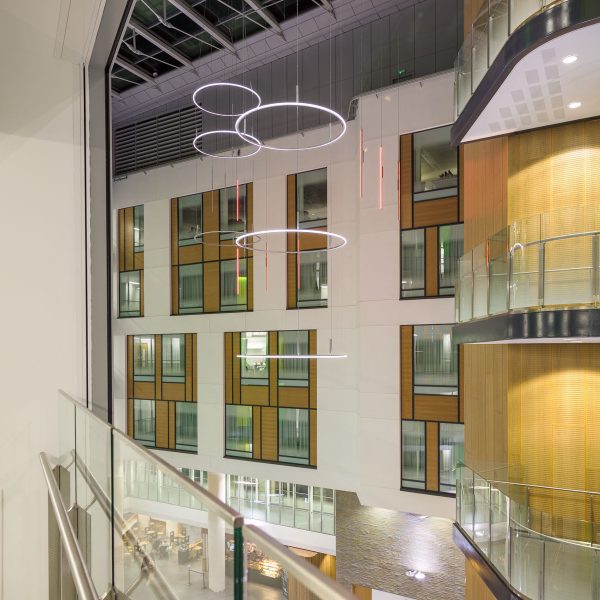
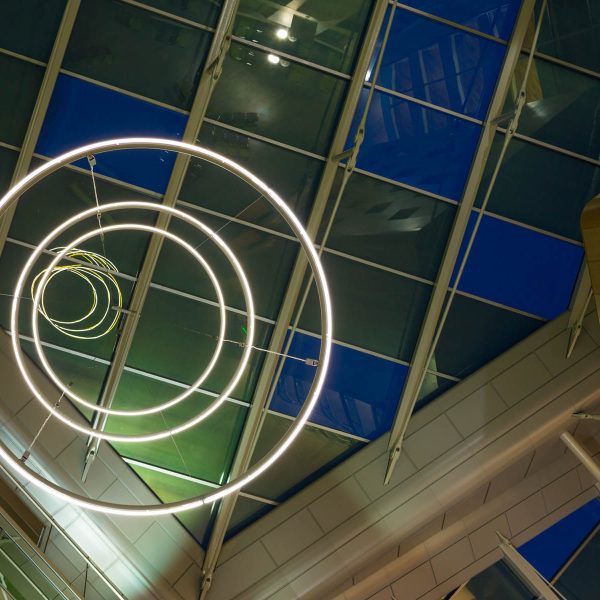
Tobias Rehberger creates objects, sculptures and environments as diverse as they are prolific. Drawing on a repertoire of quotidian objects appropriated from everyday mass-culture, Rehberger translates, alters and expands ordinary situations and objects with which we are familiar. At once utilitarian, ambient and perceptually powerful, Rehberger’s objects and environments mimic the glossy perfection of the manufactured yet idiosyncrasies in terms of their colour, size, function and location demand new rules of engagement on behalf of the beholder.
In a mesmerising installation at the Venice Biennale of 2003, Rehberger created a canopy of glass lamps activated by triggers located in seven different locations around the globe including a pumpkin field in the Walachi region in Romania, and a derelict Burger King in Kyoto. Emerging from ordinary conditions that have been radically altered, Rehberger’s proposals are interdependent upon the viewer. As such they exist as potent instruments for examining the relationship between objects and situations, and our shifting sensibilities as individual subjects.
Tobias Rehberger was born in 1966 in Esslingen, Germany. As one of the most prominent artists of his generation, Rehberger has attracted widespread international acclaim. Major solo exhibitions of the artist’s work include: Museum Dhondt-Dhaenens, Deurle (2011); Tobias Rehberger, MAXXI – Museo nazionale delle arti del XXI secolo (2010);Kunstraum innsbruck (2008); Stedilijk, Amsterdam (2008); Fondazione Prada, Milan (2007); Museo Nacional Centro de Arte Reina Sofia, Madrid (2005); and Whitechapel Gallery, London (2004). Rehberger was commissioned to create an installation for the Palazzo delle Espozizioni at the 53rd Venice Biennial for which he was awarded the Golden Lion for best artist.
Tobias Rehberger lives and works in Frankfurt and Berlin.
Southmead Hospital Bristol is a £430m new hospital for Bristol developed by the NHS Trust and PFI developers Carillion. The hospital is an 800 bed acute hospital built on the existing Southmead site.
The public arts programme led by Willis Newson was part of the PFI initiative and built on research which clearly demonstrates the direct benefits for patients of incorporating visual and performing arts into the hospital environment.
Willis Newson is a leading Bristol-based independent arts consultancy specialising in creative approaches to improving health and wellbeing. It develops & delivers public art strategies for new builds and refurbishments, manages public engagement programmes, offers an affordable design service for healthcare and provides advice and guidance on using art & design to create healthy environment.
Willis Newson was established in 2001 and has since carried out over 200 projects for more than 31 NHS Trusts, as well as working on projects for private healthcare clients, contractors and architects.
